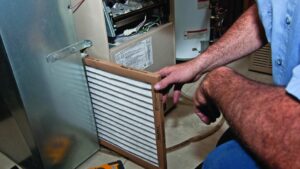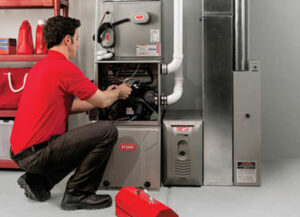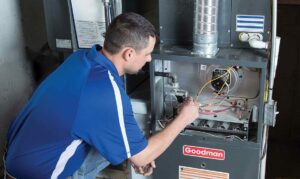How to Extend The Lifespan of Your Water Heater?
Does your water heater seem to be on its way out? Maybe the hot water isn’t as warm as it used to be, or perhaps you’re not getting enough of it.
Most water heater problems arise from three main issues: corrosion, sediment buildup, and mineral deposits. Corrosion takes place inside the tank when iron or steel rusts through due to electrolysis – two dissimilar metals in contact with each other. Sediment is simply the dirt from the environment in your water when it goes through the tank.
Mineral deposits build up on the insides of a water heater after years of natural minerals dissolving out of hard water, caused by calcium and magnesium.
If you notice any of these signs, there are some steps you can take to prolong the life of your tank for another couple of years.
How long does a water heater typically last?
Standard water heaters have an average lifespan of eight to twelve years. Most of today’s tanks are steel lined with porcelain or glass and can deteriorate and oxidize over time. Most tanks will leak eventually. It is a slow leak in some cases, and in others, it is a more significant leak. That is why you should locate the dedicated water shutoff valve before an emergency occurs.
It isn’t too typical, but some water heaters will have a useful life of fifteen or even twenty years. It is imperative to remember that even when a water heater is still working, over time, the efficiency of most water heaters will decrease as sediment continues to accumulate inside its tank.
Compared to traditional tanks, tankless water heaters can last two or three times longer, assuming the tankless unit is adequately cared for by the homeowner.
Steps to Extend the Lifespan of Your Water Heater

The following are a few things you can do to extend the life of your water heater:
Lower the temperature.
Reduce the temperature of your water heater. It will reduce the rate at which minerals build up inside and decrease corrosion as less hot water goes through the tank. Keep in mind that if you lower your hot water temperature to 120 degrees Fahrenheit, you won’t burn yourself quickly if hot water is suddenly released.
Remove the sediment from time to time.
You will have to do some research on your own as there are some sediment filters you can attach right on the output side of a water heater, and there are others that need to be installed by a professional plumber. In any case, it would be best to install a sediment filter if you are an average homeowner. You may remove the sediment by draining your water heater through the drain valve.
Install corrosion inhibitors.
The easiest way to avoid corrosion is to install a corrosion inhibitor on your water heater, which will prevent electrolysis from occurring in your tank’s metal parts. Drain the unit every three months or so to remove any buildups of sediment or minerals.
Add a second anode rod.
You can significantly increase your water heater’s life by installing a second anode rod. An anode is a sacrificial rod made out of aluminum or magnesium. Over time, it undergoes galvanic corrosion and sacrifices itself to prevent the tank from deteriorating.
Install an expansion tank.
You can potentially double your water heater’s life if you have a closed system and install an expansion tank. When water heats from 50 degrees to 120 degrees, the tank expands by around 2%. (a 50-gallon tank produces one gallon of extra volume). If you have a closed system (meaning a valve prevents water from flowing into your water main), the water will have no place to go.
Since water is not a significantly compressible material, this will result in rapid decreases and increases in water pressure. These contractions and expansions will cause stress on your plumbing system and water heater, which may cause damage as well as premature failure.
Clean or flush out the water heater tank.
Flushing out an older tank once a year can help prevent sediment buildup and maintain a higher efficiency level for a more extended period. Many newer water heater models are self-cleaning. You need to connect a garden hose to the water heater and drain the water outdoors.
Install a pressure regulating valve (PRV).
If your water pressure is very high, over 90 PSI, it can damage appliances and cause premature failure of your water heater. Install a pressure regulating valve to reduce the system’s pressure and reduce the wear and tear on appliances. Installing an expansion tank is also a good idea if you install a PRV.
Install water softeners.
The water in Alberta has high mineral content (often called hard water). Hard water causes scaling — mineral precipitation that deposits onto appliance surfaces. Hard water can significantly reduce a water heater’s lifespan. Installing a water softener can often help reduce the amount of wear and tear on your plumbing system caused by hard water.
Conclusion
Water heaters have a typical lifespan of 8-12 years. If you follow the principles outlined in this article, your water heater will likely last 3-5 more years before you need to replace it.
Having your water heater replaced is expensive, so it’s best to do the little things that can prolong its life. One of these little things could save you hundreds of dollars in water heating bills and countless hours of hot water.
If you have further questions about how to extend the life of your water heater or need professional assistance, contact Furnace Repair Calgary for expert advice and helpful tips.






